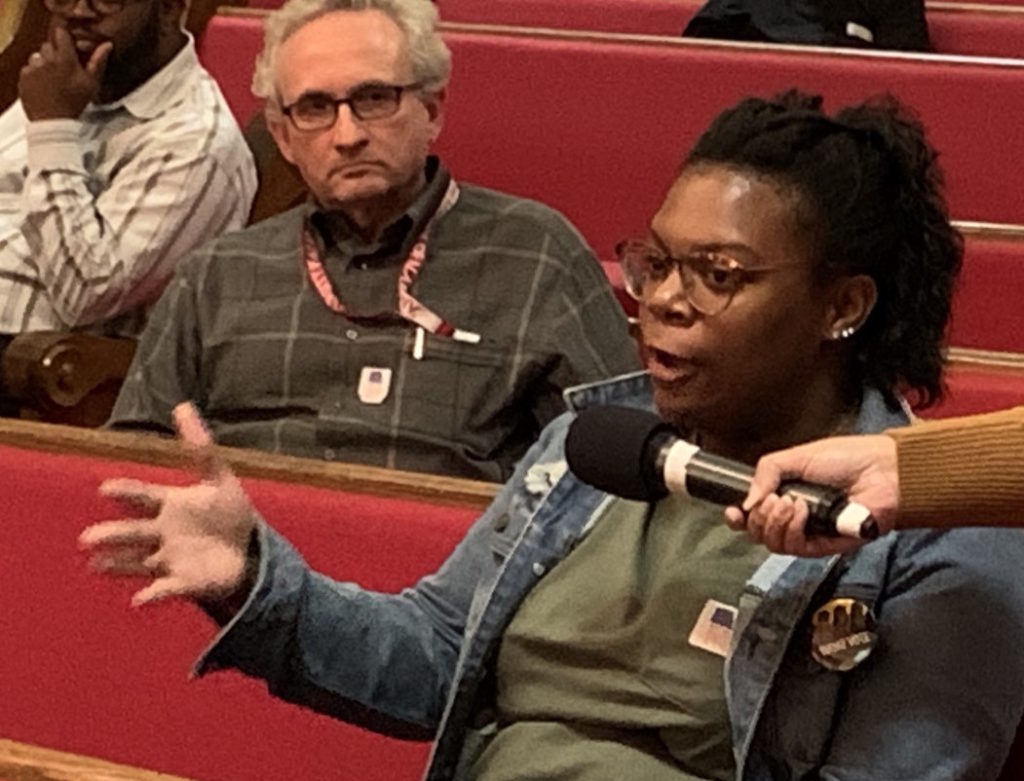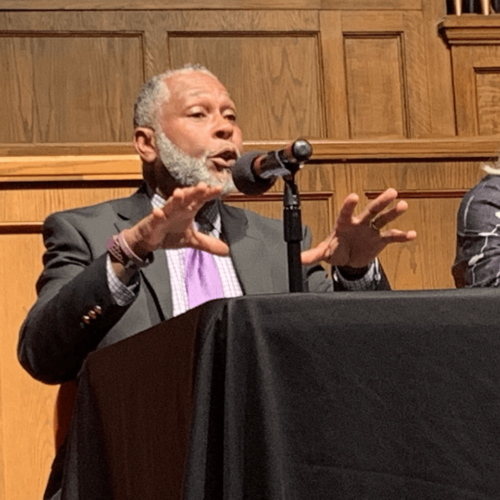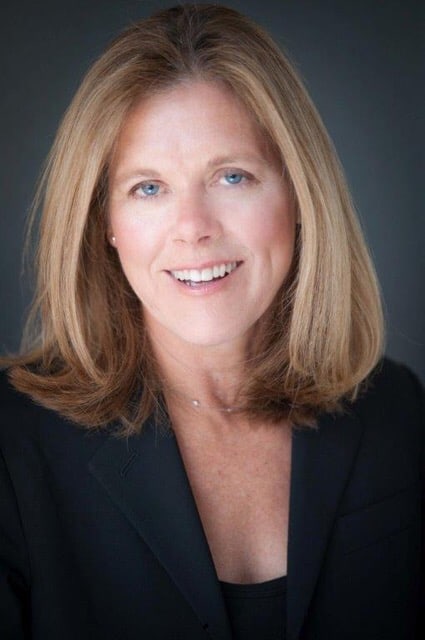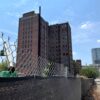Introduction
BIRMINGHAM, Alabama — Community business and nonprofit leaders are expressing skepticism about potential benefits of a federal tax incentive program — “opportunity zones” — that President Donald Trump touts as an elixir for struggling communities.
“How about partnering with the people who live in the neighborhood to truly have an impact on the community, and that hasn’t happened yet,” said Ivan Holloway, executive director of Urban Impact Birmingham, a nonprofit group working to improve the economy in the Civil Rights District in downtown.
The comments came during a panel discussion — convened Tuesday evening by the Center for Public Integrity, Local Voices Network, Urban Impact and al.com — that followed a Public Integrity investigation into a $24 million affordable housing project in Birmingham that is funded by an opportunity-zone investment.
About 35 local residents attended the event at the historic 16th Street Baptist Church, where four girls died in a bombing by the Ku Klux Klan in 1963. Staffers from the office of Rep. Terri Sewell, D-Ala., also attended.
Opportunity zones, part of the Tax Cuts and Jobs Act that Trump signed in 2017, allows wealthy investors to reduce their taxes on profits from the sale of assets if they invest the money into economically distressed areas.
The program’s advocates promised the investments would provide low-income residents with higher-paying jobs, retail shops and decent, affordable housing, among other benefits. Federal officials designated more than 8,700 zones nationwide, including 24 in Birmingham.
“With opportunity zones, we are drawing investment into neglected and underserved communities of America, so that all Americans, regardless of ZIP Code, have access to the American Dream,” Trump said at a 2018 White House event.
Numerous advocacy groups have advised real estate developers and investors to engage the residents in opportunity zones to learn about investments needed in their communities.

But the panelists said the investments in Birmingham haven’t worked out that way, so far.
“We’re always prioritizing the investors” over the community’s needs, said Carmen Mays, a panelist whose firm, Elevators, supports entrepreneurs of color in Birmingham. “It automatically puts the community at a disadvantage.”
Panelist Isabel Rubio, executive director of Hispanic Interest Coalition of Alabama, said she was excited about the opportunity-zone program when it was first announced. The coalition issued 17 microloans to small businesses last year, 15 to women-owned establishments.
Since then, her perspective has shifted.
“This is not the vehicle that I see is going to be transformational,” she said.
Rubio said the money coming into Birmingham’s opportunity zones is “very powerful,” but that the community has to be cautious that they don’t displace residents.
Isaac Cooper, founding partner and chief executive officer of IMC Financial Consulting LLC in Birmingham, moderated the 90-minute discussion.
Who We Are
The Center for Public Integrity is an independent, investigative newsroom that exposes betrayals of the public trust by powerful interests.
Community engagement and involvement were central to the discussion of what investments should be made in the opportunity zones. Holloway told the group that the community leaders and residents need to engage directly with those involved in opportunity funds to talk about the needs of the local community.
“If you could get people around the table to agree what is essential for a community to prosper,” Holloway said, “it would be well worth that conversation.”
Birmingham is working on at least 10 projects, some of which run into the hundreds of millions of dollars, according to city officials.
But it’s unclear if any will provide long-term, high-paying jobs or housing for low-income people. To date, office buildings and other commercial projects are the investments of choice, according to local media reports. Half a million dollars, for example, went toward the renovation of a historic concert venue called the Woodlawn Theater, east of downtown.
A member of the audience who worked for a federal government agency questioned the value of the investment to renovate the theater. He noted that it will provide music lessons for children and entertainment.
But, “I don’t know how that will benefit us,” he lamented.
Read more in Inequality, Opportunity and Poverty
Inequality, Opportunity and Poverty
As protests grow, big labor sides with police unions
The latest in an historically fraught relationship among police, labor and civil rights movement




Join the conversation
Show Comments